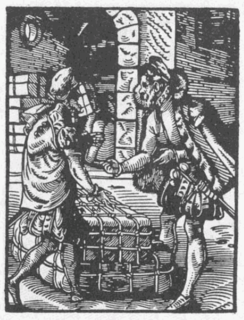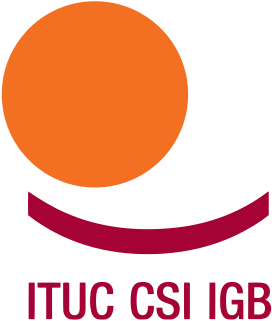
The European Union (EU) is a political and economic union of 27 member states that are located primarily in Europe. Its members have a combined area of 4,233,255.3 km2 (1,634,469.0 sq mi) and an estimated total population of about 447 million. The EU has developed an internal single market through a standardised system of laws that apply in all member states in those matters, and only those matters, where members have agreed to act as one. EU policies aim to ensure the free movement of people, goods, services and capital within the internal market; enact legislation in justice and home affairs; and maintain common policies on trade, agriculture, fisheries and regional development. Passport controls have been abolished for travel within the Schengen Area. A monetary union was established in 1999, coming into full force in 2002, and is composed of 19 EU member states which use the euro currency. The EU has often been described as a sui generis political entity.
A trade union, often simply called a union, is an organization of workers who have come together to achieve many common goals, such as protecting the integrity of their trade, improving safety standards, and attaining better wages, benefits, and working conditions through the increased bargaining power wielded by the creation of a monopoly of the workers. Trade unions typically fund the formal organization, head office, and legal team functions of the trade union through regular fees or union dues. The delegate staff of the trade union representation in the workforce are made up of workplace volunteers who are appointed by members in democratic elections.

Perestroika was a political movement for reformation within the Communist Party of the Soviet Union during the 1980s and is widely associated with Soviet leader Mikhail Gorbachev and his glasnost policy reform. The literal meaning of perestroika is "restructuring", referring to the restructuring of the Soviet political and economic system.

Trade involves the transfer of goods or services from one person or entity to another, often in exchange for money. Economists refer to a system or network that allows trade as a market.
Industrial relations or employment relations is the multidisciplinary academic field that studies the employment relationship; that is, the complex interrelations between employers and employees, labor/trade unions, employer organizations and the state.
The Organisation of African Trade Union Unity (OATUU) is an independent regional union federation for trade union centres in Africa.
The Trades Union Congress of Ghana (TUC) is the national trade union center of Ghana. It was founded in 1945 as the Gold Coast Trades Union Congress, and was the central organizing body of 14 unions registered under the Trades Union Ordinance of 1941.

The National Education, Health and Allied Workers' Union (NEHAWU) is a trade union in South Africa. With a membership of 235,000 it is the largest public sector union in the country. It organizes State, Health, Education and Welfare workers.

The General Federation of Trade Unions (GFTU) is the sole national trade union center in Syria, it was founded in 1948. By a 1968 decree establishing a single-trade-union system, all trade unions in the country are required to be affiliated to the GFTU, and the GFTU has the power to dissolve the executive committee of any union.
The Tunisian General Labour Union is a national trade union center in Tunisia. It has a membership of 517,000 and was founded January 20, 1946.
The Bermuda Public Services Union (BPSU) is a trade union in Bermuda. It was founded in 1952 as the Bermuda Civil Service Association, and changed its name in 1971.
The Association of Vatican Lay Workers is the sole trade union in Vatican City.

The International Trade Union Confederation is the world's largest trade union federation. It was formed on 1 November 2006 out of the merger of the International Confederation of Free Trade Unions (ICFTU) and the World Confederation of Labour (WCL). The Founding Congress of the ITUC was held in Vienna and was preceded by the dissolution congresses of both the ICFTU and the WCL. The ITUC has three main regional organizations: the Asia-Pacific Regional Organization, the American Regional Organization, and the African Regional Organization. The Trade Union Development Cooperation Network (TUDCN) is an initiative of the ITUC whose main objective is to bring the trade union perspective into international development policy debates and improve the coordination and effectiveness of trade union development cooperation activities.
Trade unions in Albania have had an unstable existence in recent decades, mirroring the regional political turbulance in Albania. Since the 1991 defeat of the Albanian Party of Labour (APL), independent trade unions have asserted themselves, with two main national trade union centres; the United Independent Albanian Trade Unions (BSPSh) and the Confederation of Trade Unions (KSSh).
Prior to Algerian independence in 1962, trade unions in Algeria were structured within regional organizations of French trade unions. After independence the General Union of Algerian Workers (UGTA) became the sole trade union center. The UGTA was linked with the Front de Libération nationale; however, in 1989, with constitutional changes and new laws the UGTA was distanced from the FLN and no longer retained the position of sole trade union center. Despite this, the UGTA continues to be, in practice, the only center - with few trade unions outside its affiliation.
Before 1975, while under Portuguese rule, Trade unions in Angola existed primarily as "occupational syndicates" - operating welfare services, but banned from collective bargaining and strike action. Independent African trade unions were illegal, however, some underground or exiled unions existed, and were involved in the struggle for Angolan independence.

The European Union Customs Union (EUCU) is a customs union which consists of all the member states of the European Union (EU), Monaco and – until the end of its Brexit transition period – the United Kingdom and some of its dependencies. Some detached territories of EU members do not participate in the customs union, usually as a result of their geographic separation. In addition to the EUCU, the EU is in customs unions with Andorra, San Marino, and Turkey, through separate bilateral agreements.
Trade unions in Benin operate in relative freedom, with approximately 75% of the formal sector being unionized. There are, however, concerns expressed by the International Labour Organization (ILO) and the International Trade Union Confederation (ITUC) about the discrepancies between the government's Labour Code and the labour practices outlined by ILO Conventions 87 and 98 - specifically the right of unions to form without government approval, the right of seafarers to organize or strike, and restrictions on strikes.
The Labour Party is a centre-left political party in the United Kingdom that has been described as an alliance of social democrats, democratic socialists and trade unionists. In all general elections since 1922, Labour has been either the governing party or the Official Opposition. There have been six Labour prime ministers and thirteen Labour ministries.
The labour movement or labor movement consists of two main wings: the trade union movement or labor union movement, also called trade unionism or labor unionism on the one hand, and the political labour movement on the other.







